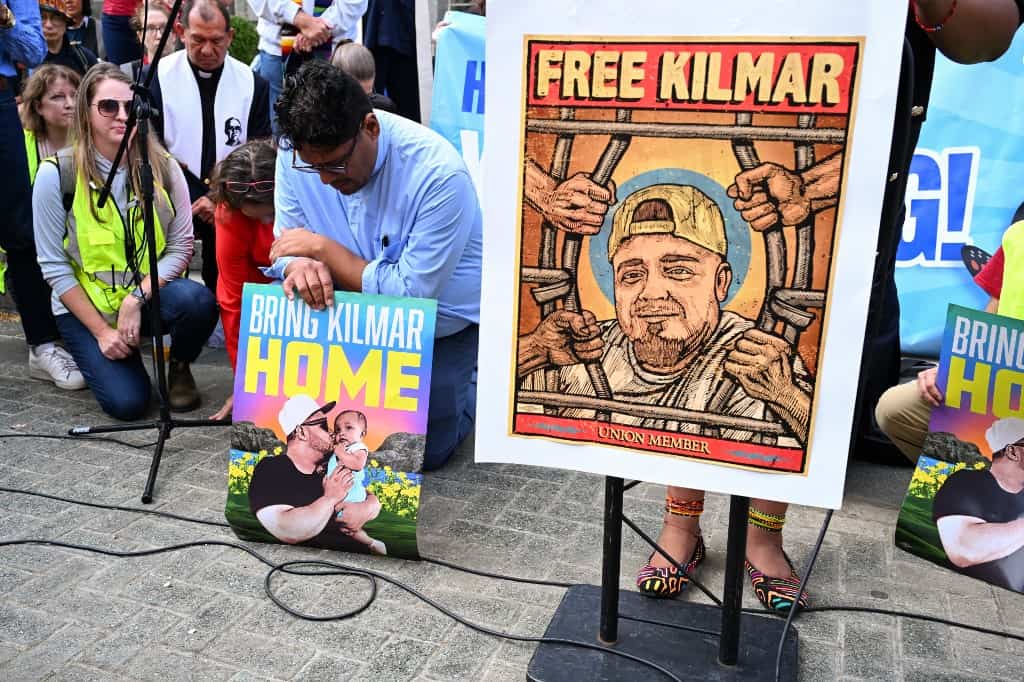A senior Costa Rican government official has confirmed that the country remains open to receiving Kilmar Abrego García, a Salvadoran man at the center of a high-profile U.S. deportation case. This statement directly challenges claims by Trump administration officials that Costa Rica has refused to accept him.
The official, speaking from the Ministry of Governance and Police, said Costa Rica would grant Abrego García entry and ensure he faces no further expulsion to another nation, including his native El Salvador. This position comes amid ongoing legal battles in the United States, where federal judges have scrutinized the handling of Abrego García’s case.
Abrego García, 32, entered the U.S. illegally in 2013 and sought asylum, citing threats from gang violence in El Salvador. Immigration authorities denied his claim, but a procedural error in 2019 led to his deportation to El Salvador despite an active appeal. There, he spent months in the notorious CECOT prison, known for harsh conditions under President Nayib Bukele’s crackdown on suspected gang members.
A U.S. federal judge later ruled the deportation unlawful and ordered Abrego García’s return to the United States in 2024. Since then, the Trump administration has pursued his removal again, this time proposing countries with no clear ties to him. Recent court filings from U.S. Justice Department lawyers stated that Costa Rica had declined to take him, leaving Liberia as the only viable option.
However, the Costa Rican official rejected that narrative, emphasizing that the country’s earlier offer still stands. “We have no plans to send him elsewhere,” the official noted, adding that Abrego García could live safely in Costa Rica without fear of repatriation to El Salvador. This aligns with Abrego García’s own wishes; his legal team has repeatedly agreed to deportation to Costa Rica, viewing it as a humane alternative.
The contradiction has fueled criticism of the Trump administration’s approach. Immigration experts point out that sending Abrego García to Liberia—a West African nation he has never visited—appears arbitrary and could violate international norms on non-refoulement, which prohibit returning individuals to places where they face harm.
U.S. officials have argued that Liberia agreed to accept him, but Abrego García’s attorneys call it an unnecessary complication when Costa Rica offers a straightforward solution.
In Costa Rica, the case highlights the nation’s role in regional migration issues. The country has long hosted refugees from Central America, providing stability amid violence in neighboring states. Accepting Abrego García fits this pattern, though it places Costa Rica in the middle of a U.S. political dispute.
Trump administration representatives have not responded directly to the Costa Rican statement, but court documents show they consider the earlier agreement with Costa Rica “non-binding.” A federal judge in Maryland, overseeing the case, has expressed frustration with the government’s shifting positions, questioning why officials bypassed Costa Rica in favor of distant alternatives.
Abrego García remains detained in the U.S. as hearings continue. His story has drawn attention from human rights groups, who argue it exposes flaws in deportation processes. If sent to Costa Rica, he could rebuild his life here, away from the threats that drove him north initially.
The outcome may set precedents for how the U.S. handles complex removals, especially under the current administration’s emphasis on strict enforcement. For now, our country’s willingness stands as a clear counter to U.S. assertions, potentially forcing a reevaluation in court.






